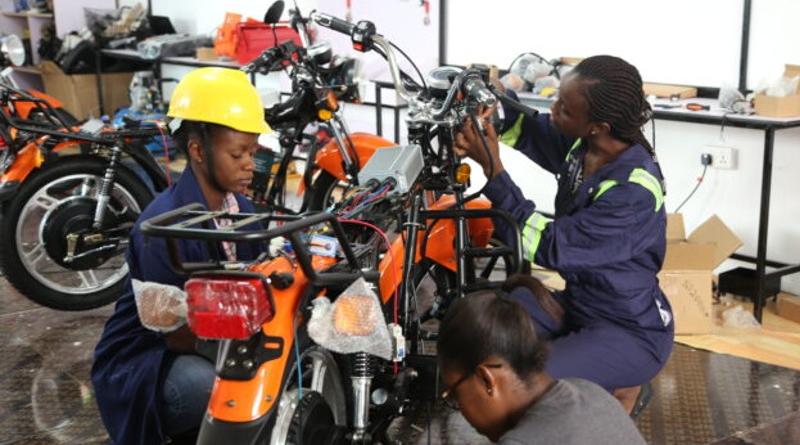Driving 2-wheel e-mobility for climate friendly transportation in Ghana

Venture capital investor Persistent will partner with Ghana-based e-mobility company Solar Taxi which designs, locally assembles and distributes electric 2-wheel and 4-wheel vehicles for transportation and delivery services.
Some of Solar Taxi’s more notable customers in Ghana include e-commerce companies Jumia and Bolt. Both use SolarTaxi electric motorcycles to deliver customer orders around Accra.
Solar Taxi CEO Jorge Appiah explained it has taken many years of hard work and resilience to get to this point, from constructing their first prototype vehicle to receiving seed funding from the MasterCard Foundation.
“We later had to prove the business concept of our model by scaling our business activities in four different locations in Ghana,” explain Appiah.
Growing the company has been a group effort as they worked with partners, customers, investors and staff alike. “As we look to create our own path to success, we intend to scale our business activities by setting up an assembling plant for our bike and car operations in Ghana.
“This latest funding from Persistent demonstrates their conviction in our business model and team and it gives SolarTaxi the much-needed support to deliver on our plans for the future,” said Appiah.
Diversifying the e-mobility value chain
Solar Taxi’s electric vehicles are designed for home charging but as the East African two-wheeler market grows, the company wants to build and deploy solar charging stations to support usage. For small entrepreneurs, the company also offers a mobility-as-a-service app that enables them to access electric motorcycles-based and climate-friendly, affordable goods delivery services.
The company has also set up and runs a digital training academy for the engineers who assemble and maintain the electric vehicles deployed in Ghana. The majority of the company’s staff of assembly technicians, who trained at the academy, are female.
Solar Taxi will soon also launch an online application called SolarCampus. This will allow university students to purchase items delivered by e-bike, as well as use e-transportation services. Solar Taxi’s reasoning is that first-hand experience with e-mobility will instil a culture of environmental consciousness in the students.
The programme will partner with universities to encourage students to measure their reduced carbon footprint and participate in e-mobility studies. In return, the students profit from lower transportation costs and impactful knowledge.
Sub-Saharan Africa is ready for 2-wheel electric vehicles
This partnership marks Persistent’s fourth investment into the electric vehicle space. The company recently shared some of its insights on the e-mobility sector’s potential in sub-Saharan Africa, publishing research into a dozen markets and counting: the opportunity for two-wheel e-mobility in sub-Saharan Africa.
They concluded that 30% of sub-Saharan African countries are ready to switch to e-vehicles, with another 15% being attractive propositions to switch, but their lack of green electricity grids dampens their prospects significantly.
While they didn’t explicitly assume in their research assumptions, Persistent does believe that governments play a dramatic role in driving the sector’s emergence. “Using public policy tools like subsidies, rate regulation and tax policy, DFIs and local banks can support with access to the right kind of capital. Alongside these players and what they can do, in the long-run, emerging EV market winners will likely have to focus on specific elements of the EV value chain,” reads Persistent’s report.
Persistent senior venture builder Toukam Ngoufanke: “At Persistent we believe e-mobility will be an essential component of sustainable, climate-friendly transportation development. We are delighted to partner with Solar Taxi in that mission.”
Theresa Smith | https://www.esi-africa.com/




